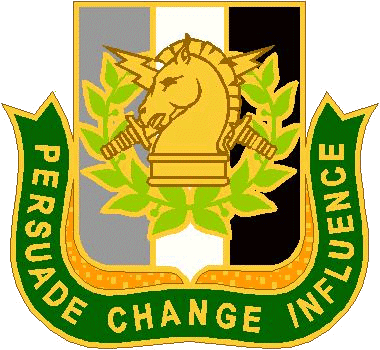Psyops Against Our Own?
Did a unit in Afghanistan engage in an IO operation against U. S. senators?
The Rolling Stone has published a story that I find deeply troubling. According to the story Gen. William Caldwell, a three-star general in charge of training Afghan troops, ordered an information operations unit under his command to conduct a campaign of IO on U. S. senators and other dignitaries:
According to Holmes, the general wanted the IO team to provide a “deeper analysis of pressure points we could use to leverage the delegation for more funds.” The general’s chief of staff also asked Holmes how Caldwell could secretly manipulate the U.S. lawmakers without their knowledge. “How do we get these guys to give us more people?” he demanded. “What do I have to plant inside their heads?”
I don’t have a problem with military officers zealously advocating courses of action—that’s part of their job. That doesn’t extend to violations of Smith-Mundt, the U. S. law that defines the terms under which the U. S. government may engage in propaganda. If the allegations are true, it would certainly seem to me there may be a case here.
There appear to be quite a number of open questions. Does Smith-Mundt pertain to the military? Does it pertain to actions taken overseas? I believe there should be an investigation into this matter and, if it is found that the actions alleged in the article violate Smith-Mundt or other federal laws, the perpetrators should be prosecuted to the full extent of the law.
However, I find the story concerning for other reasons as well. I’ll defer to James on this but to my untutored eye the conduct that’s alleged in the article would seem to be an assault on civilian control of the military. Let me ask a question. Would it be appropriate for military officers to use the resources of an information operations unit against their higher-ups in the chain of command? That sounds like insubordination to me.
UPDATE (James Joyner): Like Dave, I’m deeply disturbed by the notion of deploying psy-ops against U.S. citizens, much less Members of Congress. And I had civilian control of the military drummed into me from my earliest days as an 18-year-old cadet and it still resonates deep in my core.
That said, the Rolling Stone article — by the guy who got famous by outing clear violations of the principle of civilian control on the part of General Stanley McChrystal and staff — strikes me as a propaganda piece. There’s very little substance to it and the chief accuser appears to be a lieutenant colonel who got into trouble for misconduct and is seeking payback.
Here’s the meat of the story:
According to Holmes, who attended at least a dozen meetings with Caldwell to discuss the operation, the general wanted the IO unit to do the kind of seemingly innocuous work usually delegated to the two dozen members of his public affairs staff: compiling detailed profiles of the VIPs, including their voting records, their likes and dislikes, and their “hot-button issues.” In one email to Holmes, Caldwell’s staff also wanted to know how to shape the general’s presentations to the visiting dignitaries, and how best to “refine our messaging.”
Congressional delegations – known in military jargon as CODELs – are no strangers to spin. U.S. lawmakers routinely take trips to the frontlines in Iraq and Afghanistan, where they receive carefully orchestrated briefings and visit local markets before posing for souvenir photos in helmets and flak jackets. Informally, the trips are a way for generals to lobby congressmen and provide first-hand updates on the war. But what Caldwell was looking for was more than the usual background briefings on senators. According to Holmes, the general wanted the IO team to provide a “deeper analysis of pressure points we could use to leverage the delegation for more funds.” The general’s chief of staff also asked Holmes how Caldwell could secretly manipulate the U.S. lawmakers without their knowledge. “How do we get these guys to give us more people?” he demanded. “What do I have to plant inside their heads?”
[…]
It wasn’t the first time that Caldwell had tried to tear down the wall that has historically separated public affairs and psy-ops – the distinction the military is supposed to maintain between “informing” and “influencing.” After a stint as the top U.S. spokesperson in Iraq, the general pushed aggressively to expand the military’s use of information operations. During his time as a commander at Ft. Leavenworth, Caldwell argued for exploiting new technologies like blogging and Wikipedia – a move that would widen the military’s ability to influence the public, both foreign and domestic. According to sources close to the general, he also tried to rewrite the official doctrine on information operations, though that effort ultimately failed. (In recent months, the Pentagon has quietly dropped the nefarious-sounding moniker “psy-ops” in favor of the more neutral “MISO” – short for Military Information Support Operations.)
Going back to Desert Storm, the U.S. military has made a very strong effort to influence American public opinion. Learning the lessons of Vietnam, they ensured that the press was briefed constantly — but also largely denied independent access to information. They constantly briefed pool reporters, invited selected reporters to embed with units, and otherwise did their level best to get the military’s side of the story out while minimizing information detrimental to the operation.
During at least the wars in Iraq and Afghanistan, there has been similar interest in managing the information available to Congress, think tankers, and others. How many stories have we read about influencers coming back from a trip to the war zone and being giddy about how much progress has been made? The fact that their experience was limited to what the military wanted them to see is usually glossed over.
So, the only thing “new” here is the allegation that Caldwell ordered his information operations experts to do some research on incoming VIPs in order to best package the dog and pony show that they had planned. I’m not a fan of this but don’t really see it as more than a natural evolution of a strategy that’s been going on for twenty years now.
CODELs are of course going to be presented with propaganda when they visit military headquarters at war. Hell, visitors from the next higher echelon headquarters are treated the same way — and always have been — even in peacetime garrison situations. It’s not much different from running around and picking up the house before guests arrive at your home.
UPDATE 2 (James Joyner): Raymond Pritchett (Galrahn) agrees more snarkily, calling this “Not the Stuff of Bud Light Lime”:
In other words, Lt. Colonel Holmes and his IO team are being asked to take a break from their messageboard warrior time and Facebook friend time and being delegated to do staff nerd work, and their job is to prepare Lt. Gen. Caldwell for the dog and pony show of visiting VIPs. The ego of this Holmes guy is incredible, because he is making the suggestion through this Rolling Stones article that his skills with a keyboard are so l33t, the simple task of being assigned the role to prepare a General for a briefing with VIPs equates to an information operation against elected officials by deploying his Google searches and subsequent analysis as an influence weapon. The irony is, this kind of staff work is usually done by someone all the time, and the great offense here is that the IO Team, which is basically a social software debate club, is being assigned this work. The shame!
[…]
The only allegation being made is that Caldwell dared to ask this Holmes and his internet nerds to research and plan for a visit by VIPs for the purposes of briefing and prepping Caldwell for the visit, and the intent was so that Caldwell would be prepared to communicate more effectively his needs for more money and more people. Those are the specific allegations made by Holmes in the story, everything else in the story was the narrative that implied illegal activity added by Michael Hastings.
Holmes had an axe to grind and Hastings was all too willing to abet him. Maybe it’s because of Holmes’ elite PysOps skilz, and maybe the buzz from the Bud Lite Lime has worn off and Hastings needs another hit. But, if Congressmen are going to show up for a tour of the war zone by the generals, the generals are going to try to put their best foot forward.
UPDATE 3 (James Joyner): I’ve written a longer, more coherent version of this for New Atlanticist as “U.S. Military Running PsyOps Against Congress? Probably Not.”
UPDATE 4 (James Joyner): See “Rolling Stone PsyOps Colonel Not PsyOps Trained.”







If this isn’t illegal, it should be
I’m sure SECDEF Gates (and POTUS for that matter) does not like to have his generals doing end runs around him.
This is quite disturbing.
On second reading, I didn’t think what the general said was that controversial. It seems his point was how to get his message across to visiting congressmen and VIPs about his needs and how to get the resources to carry out his mission. This is something that every general or senior civilian leader does for visiting dignitiaries. The choice of language about “planting” things inside their heads is unfortunate, but I don’t really see anything nefarious here. I hear generals or SESs talk like this all the time when prepping for VIP visits.
DC Loser,
It’s one thing for an officer to advocate for what he/she believes is personally necessary. It’s quite another to order a subordinate unit to design and implement and influence campaign to do that.
I don’t belive Smith-Mundt applies to Defense, but Presidents have issued executive orders addressing this subject. That would put the issue more in line with subordination, unless it was authorized by the President directly or indirectly.
Might be a violation of common appropriation language:
@Andy –
How many government VIP briefings or dog and pony shows have you seen lately? They are ALL influence campaigns.
This has a Men Who Stare At Goats feel about it. No doubt these guys think they’re doing something terribly clever and extra super secret. But I doubt it amounts to anything at all.
Psyops against Al Franken? “Hey, we loved you on SNL. So: how about more troops?”
If laws were broken they should be prosecuted. But in reality I think psyops is a boondoggle. “Haji” doesn’t seem to have been terribly discouraged.
That’s essentially my position, Michael. I don’t much care whether the operations were effective or not or even what they were. My concern is whether the civil or criminal codes, executive orders, or the UCMJ has been violated.
It’s beyond illegal; it enters into the realm of the criminally absurd. It’s an abuse of power, it’s conduct unbecoming an officer, and it’s an attempt to subvert the process of Congressional oversight and civilian control of the military. It places in jeopardy civilian control of the military in terms of providing adequate funding based on statements, figures, and information provided to Congress. It’s worse than lying outright to Congress; it’s more akin to manipulating the funding and oversight process in a time of war.
Think about that. It’s already ten times worse because we are at war; this is infinitely worse than using “psy-ops” to convince Congress to pay for another airborne training tower at Fort Benning or a new swimming pool at Fort Jackson.
To use “psychological operations” troops against sitting US Senators, one of whom was subjected to interrogation, torture, and psychological operations shows a level of judgement that is absolutely beyond comprehension. No wonder they tried to smear LT. Col Holmes. They knew they were standing in it up to their eyeballs.
Bottom line, someone abused their power and, in so doing, went so far as to humiliate the Chairman of the Joint Chiefs.
This is actually so bad, you want it to be a mistake or something that is easily explained. I found myself wishing it was a hoax. This is nothing you want to learn about or believe about the uniformed military.
Why did Caldwell ask the Psyops people to get involved? I think that is a fundamental question It’s one thing to to try to find out the Senator’s favorite beer. Another to ask your Psyops folks to research details about a senator’s childhood that can be used to manipulate their decisions. i do think that it says something bad about the modern American male in the form of a US senator that the traditional hookers and booze approach is no longer considered adequate.
Steve
DC Loser,
This isn’t merely the government, but the military which is, by necessity, subordinate to elected civilian authority. Tasking units for the purpose of influencing that civilian authority is incompatible, IMO, to the military’s subordinate role. Again, there’s a huge difference between individuals speaking their minds in the context of their current position (ei. LTG Caldwell giving his opinion on what he thinks is necessary for Afghanistan) and tasking a military unit to create an influence campaign in order to support his opinion. That is no different than a Commanding Officer ordering his/her troops to call their representatives to advocate for/against DADT, just to give one example. A Commander should not be ordering subordinates to engage in political activity. It’s contrary to long-standing tradition and such orders, if given, are unlawful.
Michael,
Psyops is more than that. It is effective if used in a proper context as part of an overall military strategy. For example, it was used to great effect during the invasions of Iraq in 2003 and 1991 to increase the numbers of surrendering Iraqi forces as well as influence others to abandon positions and equipment.
Andy:
What did Caldwell and company do that amounted to “psyops” versus simply preparing for the visiting CODEL? Just because a hostile source calls something “psyops” doesn’t make it psyops.
James,
There’s a difference between providing background for a VIP visit – which is a normal and necessary staff function (and usually the domain of public affairs) – and specifically planning to influence those VIP’s using psyops personnel in order to obtain something the Commander wants. Again, suppose the issue was DADT – do you think it would be appropriate for a Commander to order subordinates to design and implement an influence campaign to get VIP’s to come down on one side or other other of that issue?
Compelling subordinates to advance a general officer’s political agenda is simply not legal. Furthermore, I work in military intelligence and there is a pretty bright line when it comes to using our tools and expertise on US citizens, much less elected leaders, known as Intelligence Oversight. There are similar laws in place to keep the psyops people out of the public affairs and visiting VIP business. I’m not familiar with the law there, but I wouldn’t be surprised at all if LTG Caldwell’s actions violated those as well.
Also, I’m assuming here that what’s been reported is generally accurate. Rolling Stone and Hastings don’t exactly have a great record for accuracy, but these allegations are serious enough that they need to be seriously investigated and addressed.
Andy:
I’m not sure where the line is drawn. If it’s illegal for generals to try to influence policymakers by presenting favorable information, most of our generals should be in jail.
I’ve never heard of a VIP visit that wasn’t a dog and pony show designed to put the program in a favorable light. Is that psyops? Or only when staff officers who do psyops work are involved?
James,
I don’t think it’s illegal for generals to try to influence policymakers, though as a matter of principle I wish they would act more as informers than lobbyists.
What I think is illegal is forcing subordinates into a position of advocacy. That those subordinates were IO personnel only compounds things.
Andy:
When have modern Arab armies not surrendered?
And by the way, psyops to get McCain and Lieberman on-board? Yeah, that must have taken some really sophisticated work.
I think this is nonsense. It may be illegal, but it’s still goat-staring.
@Andy:
Agreed.
Agreed in principle. But, here, it seems like they were being “forced” to “advocate” their existing mission.
I’m not sure why MOS/career field matters in the least. They’re just staff pukes doing some basic Web research on the VIPs’ positions and crafting their PowerPoints accordingly.
This is a case where Internet Explorer Rangers didn’t like being asked to be Powerpoint Rangers. The accusation is that Holmes and his group were asked to research the VIPs for the purposes of preparing Caldwell for the meetings.
Someone explain how they were doing influence operations against VIPs if the only content they produced was the briefs requested by their boss?
Just copy out what is quoted by Holmes, and realize that Hastings wrote the rest. At no point does Holmes describe what was being done as PSY-OP, nor his unit as doing PSY-OP (they are an IO group), Hastings makes those suggestions. Holmes describes his background as PSY-OP and the editor + Hastings fills in all the blanks.
This is a well written article designed to insure propaganda is perpetuated among the masses where readers who skim instead of study are sure to fall for the context trap.
I think it is fairly wrong to denigrate the occupational specialties involved here. The “powerpoint rangers” and the “staff pukes” were actually soldiers trained for a very specific method of targeting the enemy and the civilian population that supports the enemy.
If they were nobodies, then why are there specific, enunciated regulations that prohibit their skills from being used against US Persons?
It would be nice to know what lengths they went to (and what government databases) they may have been given access to in order to complete their work. Were they, for example, authorized to look at the passport files of US Persons?
If so, then why have we seen so many people fired for looking at passport files?
I’d like to know more as well. I hope to hell this is easily understood and well explained.
@Norman Rogers:
That’s actually not clear at all. I gather that the LTC in question is actually a reservist not trained in psyops at all.
The regulations prohibit using military resources to lie to the public. Putting on dog and pony shows for VIPs almost certainly doesn’t fall under the prohibition. If it does, it’s violated routinely.